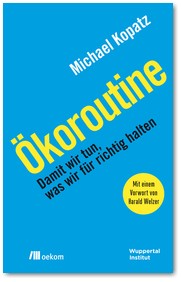- Project platform for exploring electricity-to-gas (SzG) technology in the Thüga Group successfully completed
- Important findings have been gathered and scientifically validated over the past five years of project work
- SzG and gas distribution grids are an integral part of the energy transition
- Politicians must create appropriate framework conditions
Frankfurt/Munich 08/08/2017: The Thüga Group's project phase to explore electricity-to-gas storage technology has been successfully completed. "Reversible storage systems are an important component of the energy transition. The technology enables surplus wind or solar power to be utilised in the best possible way. We were able to clearly demonstrate that the joint system has passed all load tests in the past three years of practical operation. The technology has provided many insights for further utilisation," said a delighted Dr Constantin H. Alsheimer, CEO of Mainova AG. When the plant was commissioned on Mainova's premises in Frankfurt in 2014, it was the world's first demonstration plant to convert electricity into hydrogen and feed it into the municipal gas distribution network. The aim of electricity-to-gas or power-to-gas technologies is to convert surplus electricity from renewable sources into gas for use in the heating, mobility or power generation market.
In the project, 13 Thüga Group companies pooled their expertise and jointly invested in the development of electricity-to-gas storage technology. The focus was on testing its suitability for practical use. From the project partners' point of view, the electricity-to-gas technology has proven that it fulfils the necessary requirements for practical use. During live operation, the system was interconnected with wind and solar plants, a combined heat and power plant (CHP) and electricity consumption using computer simulation in a virtual smart grid. According to the project partners, the technology has thus also proven itself as a component of intelligent grid structures.
"The system has exceeded our expectations, particularly in terms of efficiency. In its relevant load range between 50 and around 325 kilowatts, the entire system - from electricity extraction to gas feed-in - achieves an efficiency of up to 77 per cent, based on the calorific value," emphasises Michael Riechel, Chairman of the Management Board of Thüga Aktiengesellschaft. "We were also able to prove that electricity-to-gas technology is also suitable in principle for use in the primary control energy market. The great commitment of our colleagues at Mainova played a decisive role in enabling us to achieve these results." More than 1,300 visitors have seen the advantages of electricity-to-gas technology for themselves over the past few months.
SzG and gas distribution grids are an integral part of the energy transition
From the project partners' point of view, the following economic and energy-related reasons speak in favour of a smart combination of SzG technology and gas distribution grids:
- The necessary gas network infrastructure as a storage medium is available
- Only the gas grid has the capacity to cover the enormous overall storage requirements of the energy transition
- A large proportion of the storage requirements existing in 2020 can already be covered by converting electricity into hydrogen and feeding it into the gas distribution grid
- Virtually unlimited storage capacity is created by additional methanisation of the hydrogen produced
- Coupling the electricity sector with the gas sector via the SzG technology leads to significant relief for the electricity grids and reduces their need for expansion
Decarbonisation of various sectors possible via SzG
The project partners feel confirmed in their view by the latest study by management consultants enervis. This has analysed various paths to sector coupling, i.e. the networking of electricity and heat by 2050. The study focussed on the topics of costs and security of supply. Two key findings are that, firstly, natural gas is the most cost-efficient CO2avoidance option for heat and, by 2050 and beyond, a cost-effective CO2-energy source for backup power plants. And secondly, that a decarbonised world with a conversion from electricity to gas can be economically more favourable than a world without gas.
Politicians must create appropriate framework conditions
"Anyone who fails to take SzG technology into account as part of the decarbonisation of electricity generation, the heating market and the mobility market is blocking the future of what is currently the most promising long-term storage solution and hindering the energy transition," emphasises Mainova CEO Dr Constantin H. Alsheimer. In the opinion of the 13 project partners, the new German government is called upon to present a coherent concept for the development of SzG technology. In concrete terms, the focus is on three points: For market implementation, politicians should launch targeted funding programmes with the aim of reducing costs and further increasing efficiency. Furthermore, a joint network development plan for the network infrastructures (electricity/gas) should be created and an integrated cost analysis of the overall system should be carried out. "Hydrogen and methane from renewable energies must be recognised as biofuels, which will open up additional sales channels for operators," says Michael Riechel, formulating the third demand.
Source: PM Thüga Aktiengesellschaft
Keywords:
Stakeholders, DE-News, Energy storage, Renewable, Research, Climate protection, Mobility, Environmental policy, Ecology




 The gap between knowledge and action is often wide. At the beginning of his book "Ökoroutine", Michael Kopatz explains why we often don't do what we think is right: out of routine. Because the here and now determines our actions. Because it is difficult to avoid advertising. Or because living sustainably seems more expensive and more inconvenient in everyday life. Why should I, of all people, cycle more often, fly less, spend more money on organic products?
The gap between knowledge and action is often wide. At the beginning of his book "Ökoroutine", Michael Kopatz explains why we often don't do what we think is right: out of routine. Because the here and now determines our actions. Because it is difficult to avoid advertising. Or because living sustainably seems more expensive and more inconvenient in everyday life. Why should I, of all people, cycle more often, fly less, spend more money on organic products?